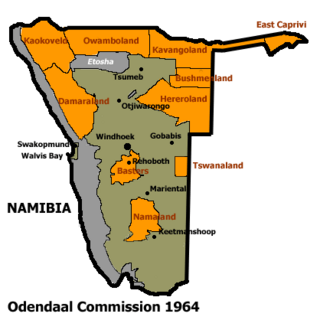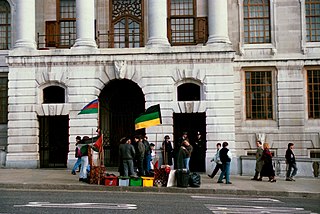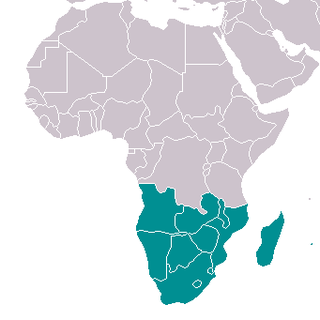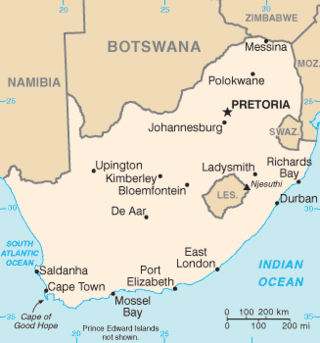
United Nations Security Council Resolution 134, adopted on April 1, 1960, was passed after a complaint by twenty-nine Member States regarding "the situation arising out of the large-scale killings of unarmed and peaceful demonstrators against racial discrimination and segregation in the Union of South Africa". The Council recognized that the situation was brought about by the policies of the government of the Union of South Africa and that if these policies continued they could endanger international peace and security.

United Nations Security Council Resolution 181, adopted on August 7, 1963, was concerned with an arms build-up by the Republic of South Africa and fears that those arms might be used to further the racial conflict in that country. The Council called upon the government of South Africa to abandon its policy of apartheid, as first requested to by Resolution 134 (1960), and called upon all states to voluntarily cease the sale and shipment of all arms, ammunition and other military equipment to South Africa.

United Nations Security Council Resolution 190, adopted on June 9, 1964, after reiterating its previous requests of the Republic of South Africa, the Council noted with great concern the Rivonia Trial and urged the government to release all persons convicted or being tried for their opposition to apartheid. The Council also invited all states to exert all their influence in order to induce the Government of South Africa to comply and asked the Secretary-General to closely follow the implementation of the present resolution to report on it to the Security Council at the earliest possible date.

United Nations Security Council Resolution 282, adopted on July 23, 1970, concerned by violations of the arms embargo passed against South Africa in Resolution 181, the Council reiterated its total opposition to the policies of apartheid and reaffirmed its previous resolutions on the topic. The Council called upon states to strengthen the arms embargo by ceasing the provision of military training to members of the South African armed forces and by taking appropriate action to give effective to the resolution's measures.

United Nations Security Council Resolution 301, adopted on October 20, 1971, after reaffirming previous resolutions on the topic, the Council condemned the Bantustans, which they described as moves designed to destroy unity and territorial integrity along with South Africa's continued illegal presence in South West Africa.

United Nations Security Council resolution 591, adopted unanimously on 28 November 1986, after recalling resolutions 418 (1977), 421 (1977), 473 (1980) and 558 (1984), the Council strengthened the mandatory arms embargo against apartheid South Africa imposed by Resolution 418, and made it more comprehensive. Resolution 591 sought to clarify vague terms from previous resolutions on the topic.

United Nations Security Council Resolution 392 was adopted on June 19, 1976 after the killing of black youths by South African police in Soweto and other areas. The Council strongly condemned the South African government for its measures of repression against the African people, expressing their shock after the "callous shooting" of the protesters and sympathizing with the victims who were demonstrating against the policies of the National Party. The resolution also reaffirmed that "the policy of apartheid is a crime against the conscience and dignity of mankind and seriously disturbs international peace and security" which continued in defiance of Security Council and General Assembly resolutions.

United Nations Security Council Resolution 402, adopted on May 25, 1977, after recalling Resolution 402 (1976), the Council noted with concern the continued harassment of the people of Lesotho by South Africa in violation of the resolution. It also recognised the burden that had been placed upon Lesotho with regard to its decision not to recognise the "independent" bantustan Transkei by South Africa.

In United Nations Security Council Resolution 417, adopted on October 31, 1977, after reaffirming Resolution 392 (1976), the Council condemned the continuing repression against black people and other opponents of apartheid, as well as the South African media and the mounting deaths of detainees. The Council foresaw that the continuation of such activities would lead to serious racial conflict with international repercussions.

United Nations Security Council resolution 475, adopted on 27 June 1980, after hearing representations from the People's Republic of Angola, the Council recalled resolutions 387 (1976), 447 (1979) and 454 (1979), and expressed its concern and condemned the continuing attacks on the country by South Africa through occupied South West Africa.

United Nations Security Council resolution 503, adopted unanimously on 9 April 1982, after reaffirming Resolution 473 (1980), the Council expressed its concern at the death sentences issued by the Transvaal Provincial Division of the Supreme Court of South Africa against Ncimbithi Johnson Lubisi, Petrus Tsepo Mashigo and Naphtali Manana, all of whom were members of the African National Congress.

United Nations Security Council resolution 532, adopted almost unanimously on 31 May 1983, after hearing a report from the Secretary-General and reaffirming resolutions 301 (1971), 385 (1976), 431 (1978), 432 (1978), 435 (1978) and 439 (1978), the Council condemned South Africa's continued occupation of Namibia, then known as South West Africa. All voted in favour other than France, who abstained.

United Nations Security Council Resolution 545 was adopted on 20 December 1983; after hearing representations from the People's Republic of Angola, the Council recalled resolutions 387 (1976), 428 (1978), 447 (1979), 454 (1979) and 475 (1980), and expressed its concern at the continuing attacks on the country by South Africa through occupied South West Africa.

United Nations Security Council resolution 546, adopted on 6 January 1984, after hearing representations from the People's Republic of Angola, the council recalled resolutions 387 (1976), 428 (1978), 447 (1979), 454 (1979), 475 (1980) and 545 (1983), and expressed its concern at the continuing attacks on the country by South Africa through occupied South West Africa.

United Nations Security Council resolution 556, adopted on 23 October 1984, after recalling 554 (1984) and the Universal Declaration of Human Rights, the Council expressed its alarm at the killing of anti-apartheid demonstrators in South Africa, reaffirming that the country's disregard for world opinion will lead to a further escalation of the "explosive situation".

United Nations Security Council resolution 560, adopted unanimously on 12 March 1985, after recalling resolutions 473 (1980), 554 (1984) and 556 (1984), the council condemned the continuing repression of anti-apartheid activities in South Africa, noting that the repression would undermine the possibility of a peaceful solution.

United Nations Security Council resolution 566, adopted on 19 June 1985, after recalling resolutions 269 (1969), 276 (1970), 301 (1971), 385 (1976), 431 (1978), 432 (1978), 435 (1978), 439 (1978), 532 (1983) and 539 (1983), the Council expressed concern at the tension and instability caused the continued occupation of Namibia by South Africa, noting the apartheid policies implemented in the territory and that the territory was used as a springboard for attacks on other southern African countries.

United Nations Security Council resolution 581, adopted on 13 February 1986, after hearing representations from Sudan and the front-line states and reaffirming resolutions 567 (1985), 568 (1985), 571 (1985), 572 (1985) and 580 (1985), the Council strongly condemned "racist South Africa" for its recent threats to perpetrate acts of aggression against neighbouring countries in southern Africa.

United Nations Security Council resolution 623, adopted on 23 November 1988, the Council noted with grave concern the death sentence imposed upon anti-apartheid activist Paul Tefo Setlaba, on the basis of "common purpose" in South Africa. The resolution at the meeting urgently called by Zambia strongly urged the Government of South Africa to commute Setlaba's sentence and stay his execution in order to further avoid aggravating the situation in South Africa.

United Nations Security Council resolution 765, adopted on 16 July 1992, after recalling resolutions 392 (1976), 473 (1980), 554 (1984) and 556 (1984), the council condemned the escalating violence in South Africa, in particular the Boipatong massacre on 17 June 1992, which resulted in the deaths of 46 people, and the suspension by the African National Congress (ANC) of bilateral talks with the South African government.













